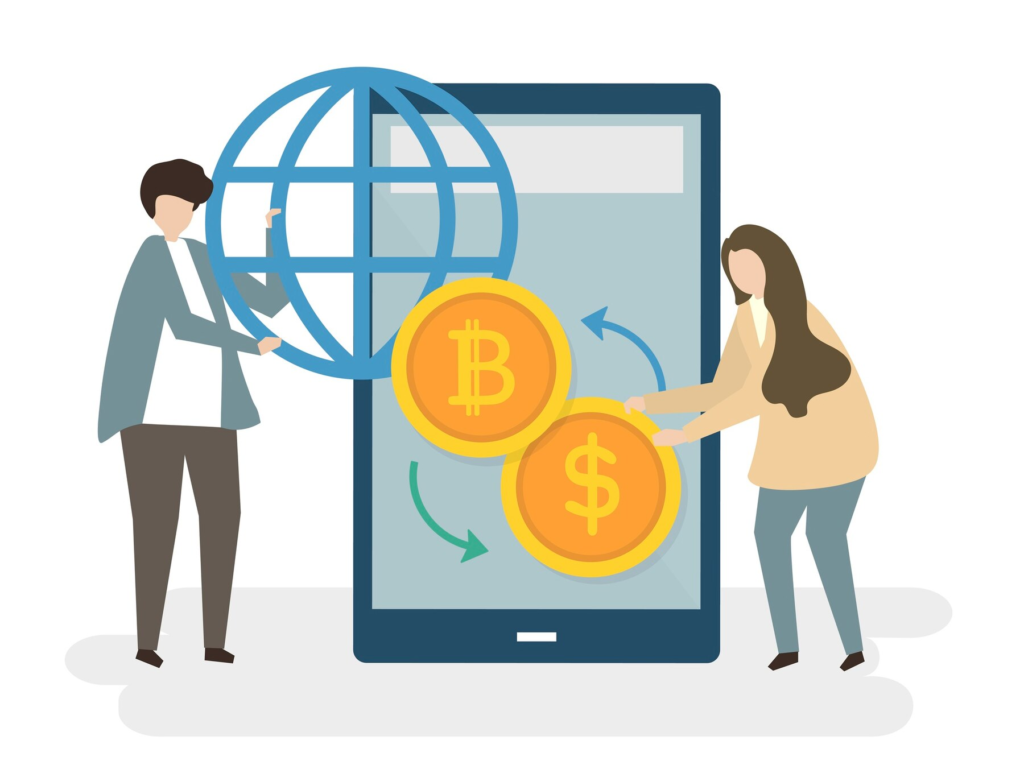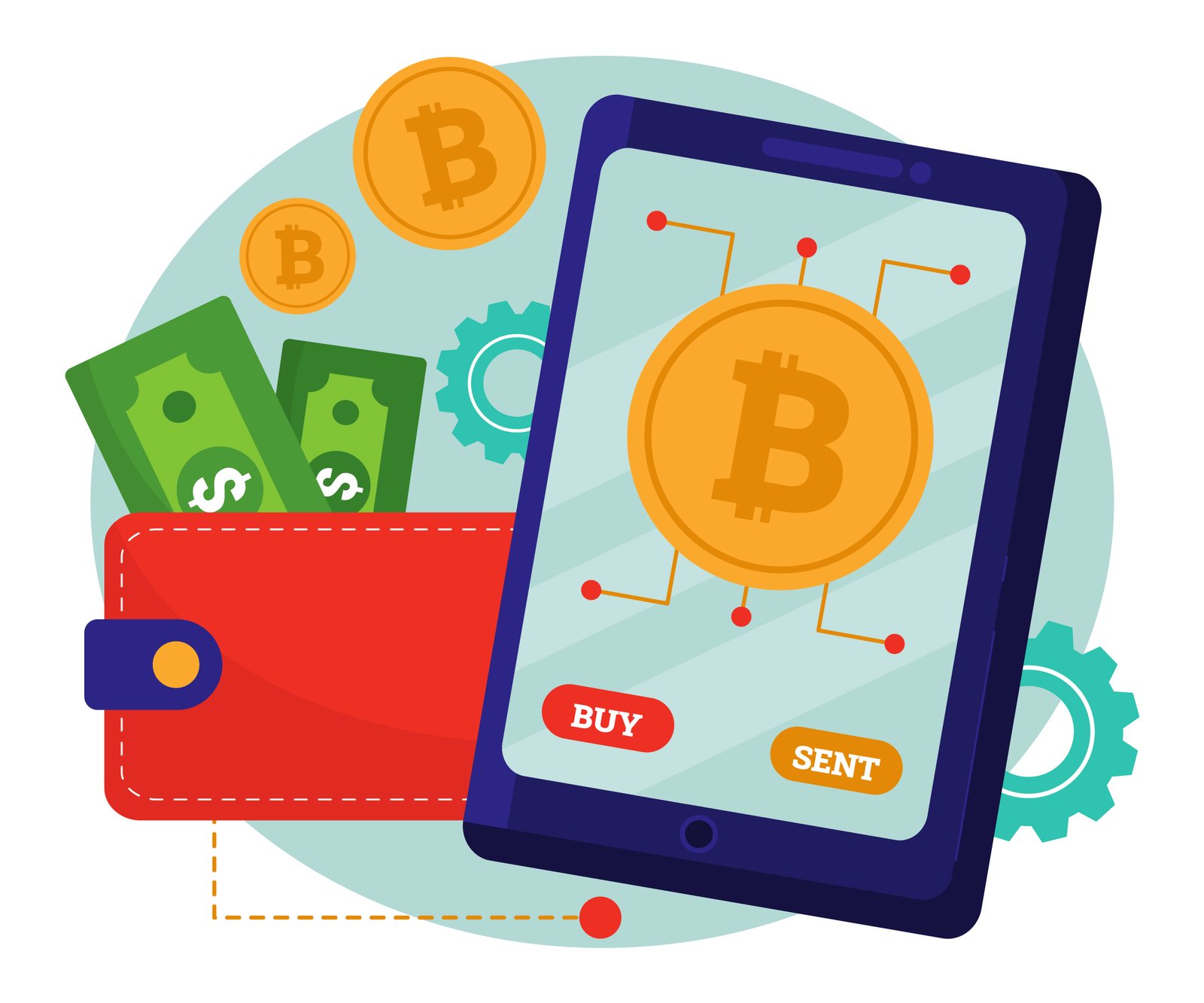Table of Contents
- Introduction to Blockchain Technology
- Current Landscape of B2B Payments
- How Blockchain Transforms B2B Payments
- Benefits of Adopting Blockchain for B2B Transactions
- Challenges and Considerations in Implementing Blockchain Payments
- Real-World Applications of Blockchain in B2B Payments
- Future Trends and Predictions for Blockchain in B2B Payments
- Steps for Businesses to Transition to Blockchain Payments
- Conclusion: Embracing the Future of B2B Payments
Introduction to Blockchain Technology
Blockchain technology, initially developed as the underlying architecture for cryptocurrencies, represents a significant evolution in the management and processing of transactions. At its core, a blockchain is a distributed digital ledger that records transactions across many computers in a way that ensures the security, transparency, and integrity of the data. This decentralization is crucial; it removes the necessity for a central authority, thereby reducing the risks of fraud and manipulation.
To better understand blockchain technology, it is important to familiarize oneself with some key terms. A “decentralized ledger” is an essential component of blockchain, with each participant in the network possessing a copy of the entire chain. When a transaction occurs, it is simultaneously recorded on all versions of the ledger, which validates the transaction through consensus among participants. This promotes a level of trust and accountability that traditional centralized systems often lack.
Furthermore, blockchain employs a mechanism known as “smart contracts.” These are self-executing contracts with the terms of the agreement directly written into code. They automatically enforce and execute contractual agreements when predetermined conditions are met, thus streamlining processes and minimizing the need for intermediaries. The use of smart contracts has the potential to revolutionize various sectors, particularly in B2B payments, where the efficiency and reliability of transactions are paramount.
The implications of blockchain technology extend beyond cryptocurrencies, as its attributes can transform how financial transactions are conducted. By leveraging decentralization, enhanced security, and the proactive nature of smart contracts, blockchain presents a transformative opportunity for businesses aiming to improve their payment processes and overall operational efficiency.
Current Landscape of B2B Payments
The landscape of B2B payments has evolved significantly over the past few decades; however, it continues to face remarkable challenges that hinder operational efficiency. Traditional payment methods, including wire transfers, checks, and automated clearing house (ACH) transactions, remain prevalent. While these methods have established a foundation for business transactions, they are plagued by inefficiencies that can detract from their effectiveness in the current fast-paced economy.
One of the primary issues associated with conventional B2B payments is the high transaction fees incurred by businesses. These fees can accumulate rapidly, particularly for companies that engage in frequent cross-border transactions. Additionally, the lengthy settlement times further aggravate the process. In many instances, payment completion can take several days, which disrupts cash flow management and availability of funds for important operational needs.
Fraud risk is another significant concern in the realm of B2B payments. Traditional payment methods often lack robust security measures, rendering them vulnerable to cyberattacks and fraudulent activities. As businesses increasingly rely on digital solutions for their transactions, the need for secure payment alternatives becomes more urgent.
The limitations of existing payment methods highlight the necessity for innovative solutions that can provide faster, cheaper, and more secure transactions. Blockchain technology emerges as a viable alternative, promising to address many of these challenges by minimizing transaction costs, accelerating settlement times, and enhancing security through decentralized and immutable ledgers. As businesses continue to navigate the complexities of B2B payments, it is essential to explore transformative approaches that not only optimize financial operations but also foster greater trust and collaboration across the supply chain.
How Blockchain Transforms B2B Payments
Blockchain technology is revolutionizing the landscape of Business-to-Business (B2B) payments by introducing new levels of security, efficiency, and cost savings. One of the core advantages of blockchain is its robust security features, underscored by advanced encryption methods. Each transaction recorded on the blockchain is immutable and transparent, significantly reducing the risk of fraud and enhancing trust among businesses. This heightened security is essential as B2B transactions often involve substantial amounts of money and sensitive data.
In addition to providing enhanced security, blockchain also contributes to reducing transaction costs typically associated with traditional payment methods. Conventional payment systems often involve multiple intermediaries, each imposing their own fees, which can accumulate to a significant expense for businesses. Blockchain minimizes these intermediaries by enabling direct peer-to-peer transactions. By doing so, it decreases the overall transaction fees, making B2B payments more economical and predictable. This cost-effectiveness can empower businesses to allocate resources more efficiently, thereby supporting growth and increased profitability.
Speed is another critical transformation brought forth by blockchain technology. Traditional financial systems can impose delays on transactions, especially when dealing with international payments, due to the need for manual processing and verification. Blockchain facilitates real-time transactions, ensuring that payments are executed almost instantaneously. This acceleration can significantly improve cash flow for businesses, allowing them to manage their operations more effectively.
Moreover, smart contracts, programmable agreements that automatically execute when predefined conditions are met, further enhance the B2B payment process. These contracts eliminate the need for manual intervention, diminishing the likelihood of human error while ensuring timely execution of agreements. By automating payment processes, smart contracts add another layer of efficiency and reliability to B2B transactions.

Benefits of Adopting Blockchain for B2B Transactions
The adoption of blockchain technology for B2B transactions presents a multitude of benefits that can significantly enhance payment processes. One of the primary advantages is the transparency that blockchain offers. Every transaction is recorded on a distributed ledger, ensuring that all parties involved have access to the same information in real-time. This heightened level of transparency reduces the likelihood of disputes and fosters trust among trading partners. Companies can thus function more efficiently, as they spend less time reconciling accounts or addressing discrepancies.
Another crucial benefit is the speed of transactions. Traditional payment methods often involve intermediary banks or payment processors, which can lead to delays of several days. In contrast, blockchain transactions can be processed almost instantaneously, regardless of geographical location. This rapid processing can be particularly advantageous for businesses engaged in cross-border trade, where time is often of the essence. The reduction in transaction times not only expedites the payment cycle but also enhances overall cash flow for businesses.
Cost-effectiveness is yet another compelling reason for B2B companies to consider blockchain technology. By eliminating the need for intermediaries, businesses can significantly reduce transaction fees and associated costs. For instance, companies that operate within industries with traditionally high processing fees, like finance and logistics, stand to benefit greatly by switching to blockchain-enabled payment systems. Additionally, the enhanced security that comes with blockchain technology minimizes the risk of fraud, further reducing potential losses.
Lastly, adopting blockchain can pave the way for expanded market access. Innovative payment capabilities can attract a broader range of clients and partners, especially in regions where traditional banking systems are underdeveloped. Businesses utilizing blockchain can emerge as leaders in their sectors, leveraging the technology to differentiate themselves in competitive markets. Overall, the integration of blockchain into B2B transactions not only strengthens existing operations but also opens up new avenues for growth and innovation.
Challenges and Considerations in Implementing Blockchain Payments
The implementation of blockchain payment systems presents a unique set of challenges that businesses must navigate. One major concern is scalability. Many current blockchain networks struggle to process transactions at speeds comparable to traditional payment systems. This challenge arises from the decentralized nature of blockchain, where each transaction requires consensus among network participants. As transaction volume increases, the network can become congested, leading to slower processing times and increased costs. Businesses must therefore evaluate the scalability of their chosen blockchain solution to ensure it can meet their future transaction needs.
Another critical consideration is regulatory compliance. The rapidly evolving regulatory landscape surrounding cryptocurrencies and blockchain technology can present hurdles for businesses. Different jurisdictions may impose varying rules and regulations, creating confusion and potential legal risks. Companies must stay abreast of these regulations to ensure compliance, particularly regarding anti-money laundering (AML) and know-your-customer (KYC) requirements. Engaging legal expertise may be necessary to navigate this complex environment effectively.
The need for industry standards is also pivotal in the successful implementation of blockchain payments. Currently, there is a lack of universally accepted standards, which can create interoperability issues among different blockchain platforms. Companies may find themselves locked into a specific technology, limiting their ability to collaborate with other organizations or leverage innovative solutions. Establishing industry-wide protocols could mitigate these issues and promote greater adoption of blockchain in B2B transactions.
Lastly, partner integration represents a vital consideration. Businesses must ensure that their suppliers and customers are equipped to use the blockchain payment system, which may require significant investments in technology and training. A successful transition hinges on all parties involved being on board and capable of adapting to new systems. Overall, understanding these challenges is essential for businesses aiming to implement blockchain payment solutions effectively.
Real-World Applications of Blockchain in B2B Payments
The integration of blockchain technology into B2B payments has become increasingly prominent as organizations recognize its potential to enhance efficiency, security, and transparency. A prime example of this transition is evident in the financial services sector, where financial institutions like JPMorgan Chase have implemented blockchain to streamline interbank payments. The firm’s blockchain-based network, known as the Interbank Information Network, facilitates real-time payments, reducing transaction time and minimizing operational costs.
Another noteworthy case is that of IBM and Maersk, who collaborated to create TradeLens, a blockchain-enabled platform aimed at improving the global shipping industry. By providing a shared, tamper-proof ledger accessible to all parties within the supply chain, TradeLens has significantly reduced paperwork, minimized delays, and increased trust among stakeholders. This application illustrates how blockchain can optimize operations by fostering collaboration, thereby revolutionizing B2B transaction processes.
Furthermore, companies such as VeChain have introduced blockchain solutions that enhance supply chain traceability. By integrating blockchain with IoT devices, VeChain allows businesses to monitor the location and condition of shipments in real-time, ensuring product authenticity and regulatory compliance. This application minimizes fraud and enhances accountability among suppliers, ultimately leading to improved reliability in B2B transactions.
Additionally, the beverage giant AB InBev has employed blockchain technology to manage its vast network of suppliers more effectively. By utilizing a blockchain-based system for invoicing and payment processing, the company has gained greater visibility into its transactions, enabling better cash flow management and reducing the risk of payment disputes with suppliers.
These real-world applications clearly demonstrate that blockchain technology is not just a theoretical concept; it has tangible benefits for B2B payments. As organizations continue to explore and adopt blockchain solutions, they stand to reap significant advantages in transaction speed, cost reductions, and enhanced security.

Future Trends and Predictions for Blockchain in B2B Payments
The landscape of B2B payments is experiencing a transformative shift largely driven by advancements in blockchain technology. As we move into the future, several emerging trends stand poised to influence and reshape this sector, marking blockchain as a pivotal component in financial transactions between businesses.
One significant trend is the growth and acceptance of cryptocurrencies in B2B payments. As more companies recognize the potential for digital currencies to streamline cross-border transactions, we anticipate an increase in the number of businesses adopting cryptocurrencies as a legitimate payment method. This shift not only enhances transaction speed and efficiency but also minimizes the costs associated with traditional banking methods, such as wire transfers and currency conversions. Furthermore, the volatility of cryptocurrencies will likely stabilize, making them a more appealing option for B2B interactions.
In parallel, regulatory environments surrounding blockchain and digital currencies are evolving. Many governments are moving toward frameworks that provide legal clarity and assurance regarding the use of blockchain technology. This regulatory acceptance will pave the way for broader adoption within various industries, as businesses will feel more secure in implementing blockchain-based solutions. Analysts suggest that as compliance becomes standardized, risks associated with cryptocurrency volatility and regulatory scrutiny will decrease, further encouraging businesses to transition to blockchain for their payment processes.
Additionally, the integration of blockchain with emerging technologies such as artificial intelligence and the Internet of Things (IoT) is predicted to enhance B2B payment systems. These synergies can lead to more sophisticated solutions that automate payments, enhance data security, and provide real-time tracking of financial transactions. Industry experts are optimistic that the confluence of these technologies will create a seamless and transparent ecosystem, setting new benchmarks for efficiency within B2B payments.
As the adoption of blockchain technology accelerates in the B2B payments landscape, it is evident that its impact will be far-reaching and transformative, fundamentally altering how businesses interact financially in the coming years.
Steps for Businesses to Transition to Blockchain Payments
Transitioning to blockchain payments can significantly enhance transaction efficiency and security for businesses. To embark on this journey, companies should take several actionable steps. The first step involves evaluating the current payment systems in place. Organizations ought to thoroughly assess their existing payment methods, determining strengths and weaknesses. This analysis will help identify the specific areas where blockchain payments can provide improved cost-effectiveness and security.
Subsequently, businesses should invest time in understanding blockchain solutions. This emerging technology can vary significantly in functionality and applicability. It is essential for organizations to research various blockchain protocols, such as Ethereum, Hyperledger, or any other relevant framework, to identify which aligns best with their operational needs. Knowledge of the different blockchain types and their transaction capabilities will empower decision-makers in the selection process.
The next pivotal step involves choosing the right blockchain platform. Selecting a platform that is scalable and compatible with both the company’s long-term goals and existing technology infrastructure is essential. Factors to consider include transaction speed, security features, regulatory compliance, and support services. Engaging with experienced blockchain consultants can also facilitate this phase, offering insights that may not be readily available in-house.
Training staff is an equally crucial aspect of transitioning to blockchain payments. Employees must be equipped with the necessary skills and knowledge to navigate this technology effectively. Organizing training sessions or workshops can ensure that the workforce is prepared to utilize blockchain platforms efficiently.
Furthermore, businesses should contemplate running pilot programs before full-scale implementation. These smaller programs allow organizations to test blockchain payments in a controlled environment, enabling them to identify potential challenges and make necessary adjustments. Gradually scaling the solution can ensure a seamless transition, minimizing disruptions while maximizing the advantages of adopting blockchain technology in payment systems.
Conclusion: Embracing the Future of B2B Payments
The advent of blockchain technology represents a transformative shift within the B2B payments landscape. Throughout this blog post, we have explored the myriad advantages that blockchain offers, including enhanced security, increased efficiency, and reduced costs. By leveraging decentralized networks, businesses can minimize the risks associated with fraud and errors, ensuring that transactions are secure and transparent. Moreover, the near-instantaneous processing capabilities of blockchain can significantly streamline payment workflows, providing companies with the agility needed to thrive in a competitive marketplace.
As we assessed the evolving nature of B2B payments, it became evident that traditional methods often fall short in addressing the complexities of modern commerce. In contrast, blockchain provides an innovative solution that simplifies processes, enhances accountability, and fosters trust among trading partners. The use of smart contracts further exemplifies how businesses can automate payment systems, reducing the administrative burden and allowing companies to focus on strategic operations rather than transactional minutiae.
It is crucial for organizations to recognize the urgency of adopting these advancements. As more businesses begin to integrate blockchain into their payment frameworks, those who remain hesitant may find themselves at a strategic disadvantage. Being proactive in exploring and implementing this technology is essential to maintaining a competitive edge. Therefore, industry players should invest in understanding blockchain’s capabilities and begin seeking out partnerships and solutions that align with this cutting-edge approach to payments.
In conclusion, embracing blockchain technology will not only revolutionize the B2B payment process but also pave the way for new opportunities in a rapidly evolving digital economy. The integration of innovative solutions is not merely an option but a necessity for businesses aiming to stay relevant and successful in the future.





